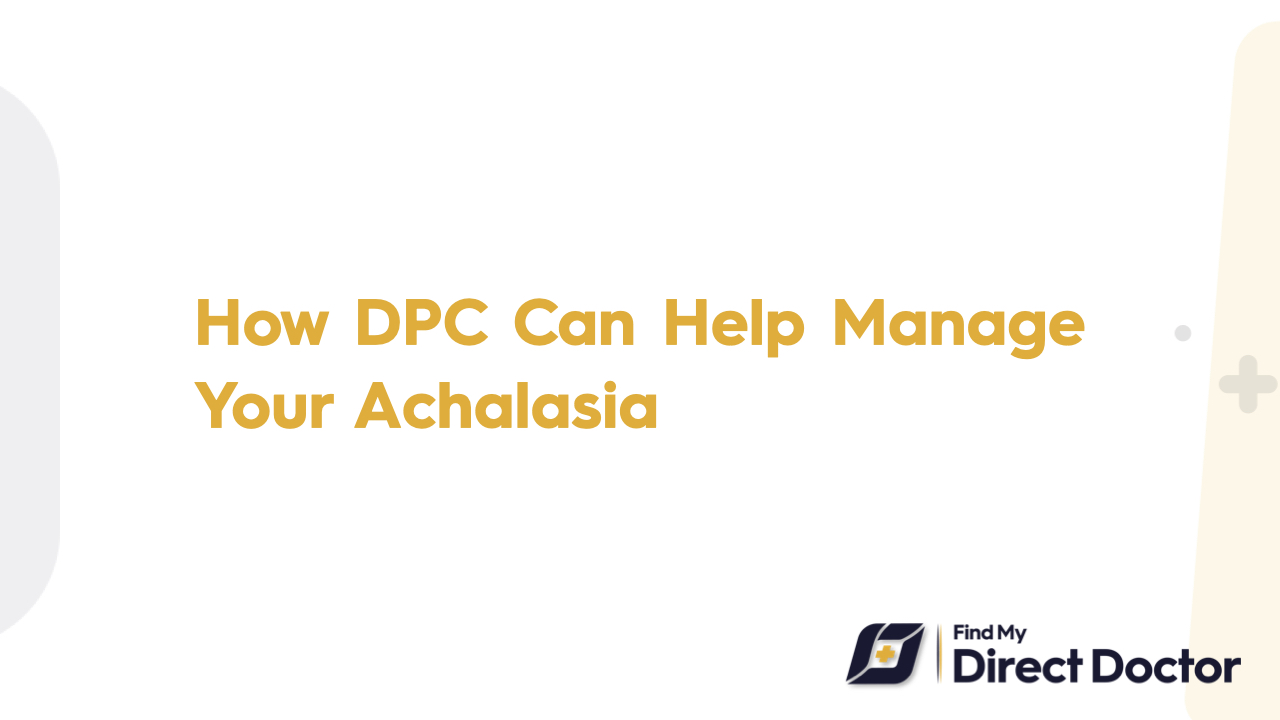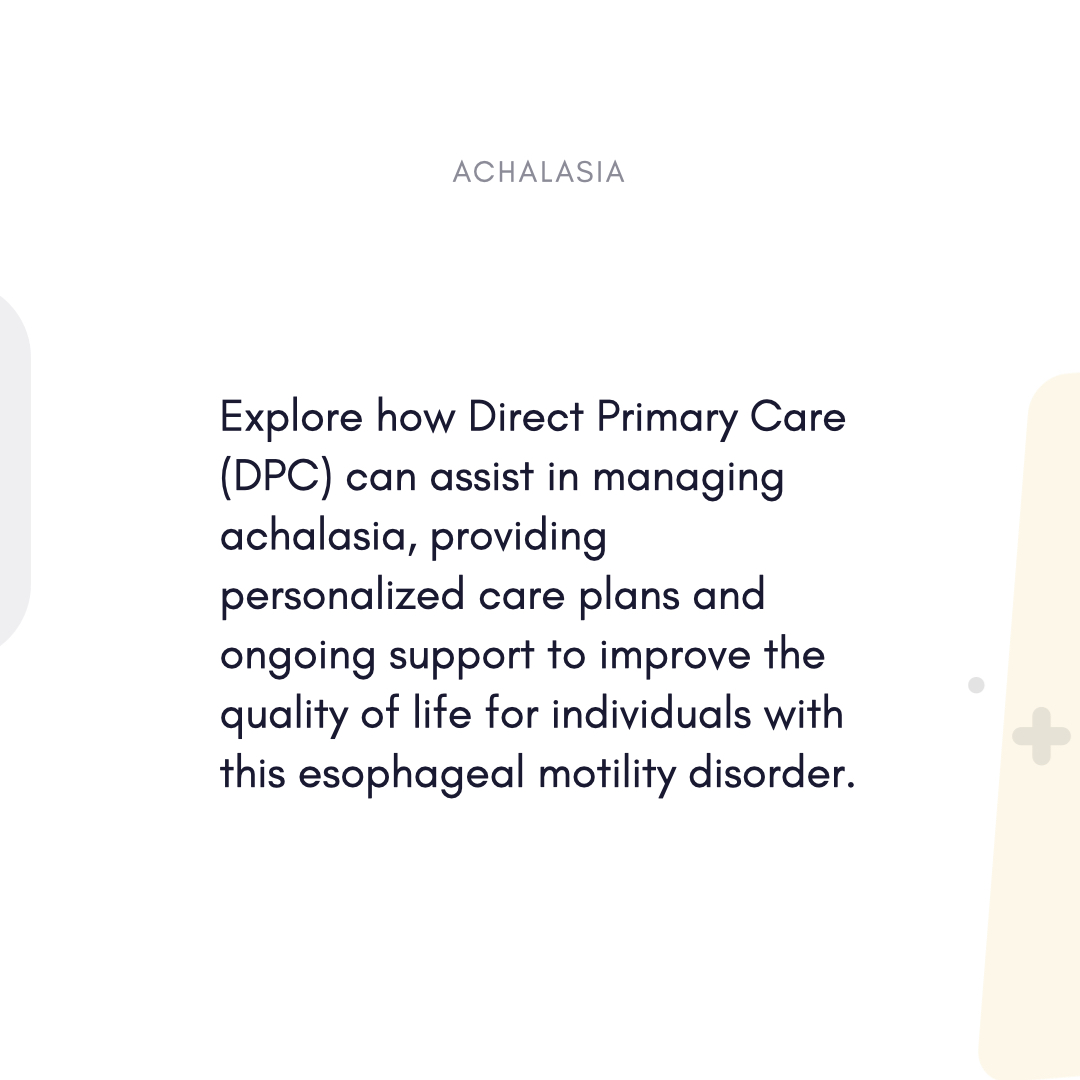



An achalasia is a rare, but challenging condition affecting the esophagus, causing difficulty swallowing and regurgitation. Achalasia occurs when the lower esophageal sphincter (LES) fails to relax properly during swallowing. Patients with achalasia often experience chest pain, weight loss, and persistent coughing.

Direct Primary Care (DPC) can play a crucial role in managing achalasia, providing personalized care, and improving patients' quality of life.
To begin understanding the benefits of DPC, let's take a brief look at achalasia:
Achalasia is a rare esophageal motility disorder characterized by an inability of the lower esophageal sphincter to relax, thereby impairing food passage into the stomach. The exact cause is unclear, but nerve damage to the muscles of the esophagus seems to be associated with it.
Symptoms of Achalasia:
Dysphagia: Difficulty swallowing both solids and liquids.
Regurgitation: Food and liquids coming back up after swallowing.
Chest Pain: Due to food accumulation and pressure in the esophagus.
Weight Loss: As patients avoid eating due to discomfort.
Chronic Cough: Irritation caused by regurgitated stomach contents.
In DPC, patients and their primary care providers develop direct relationships. Here are some ways DPC can benefit patients with achalasia:
1. Accessibility and Timely Care
Patients with achalasia who are experiencing sudden symptoms or complications can benefit from same-day or next-day appointments offered by DPC clinics.
2. Personalized Approach
Achalasia management requires tailored treatment plans, taking into account factors such as severity, patient preferences, and lifestyle. DPC providers can address individual needs effectively.
3. Holistic Care Coordination
Often, achalasia involves collaboration with gastroenterologists, radiologists, and nutritionists. DPC physicians facilitate seamless communication, ensuring comprehensive care.
4. Nutritional Guidance
As a result of swallowing difficulties, patients with achalasia may have difficulty eating. DPC providers can assist patients with nutritional counseling, helping them maintain adequate calorie intake despite swallowing difficulties.
5. Emotional Support
The emotional stress of living with achalasia can be overwhelming. DPC providers help patients cope by providing empathy, encouragement, and mental health support. The famous author Maya Angelou once said, "People will forget what you said, they will forget what you did, but they will never forget how you made them feel."
DPC allows for individualized treatment plans:
Diet Modifications: DPC providers guide patients on soft, easily digestible foods and small, frequent meals.
Medication Management: DPC physicians can prescribe medications to relax the LES and improve swallowing.
Minimally Invasive Procedures: DPC facilitates referrals for procedures like pneumatic dilation or laparoscopic myotomy.
Long-Term Follow-Up: Regular check-ins help monitor symptoms and adjust treatment as needed.

The DPC approach to achalasia is holistic and patient-centered. DPC embodies this philosophy, providing comprehensive care for achalasia sufferers, as Dr. William Osler wisely stated. “The good physician treats the disease; the great physician treats the patient who has the disease.”
Consider seeking care from a DPC provider if you or someone you know experiences symptoms of achalasia.
Previous Post